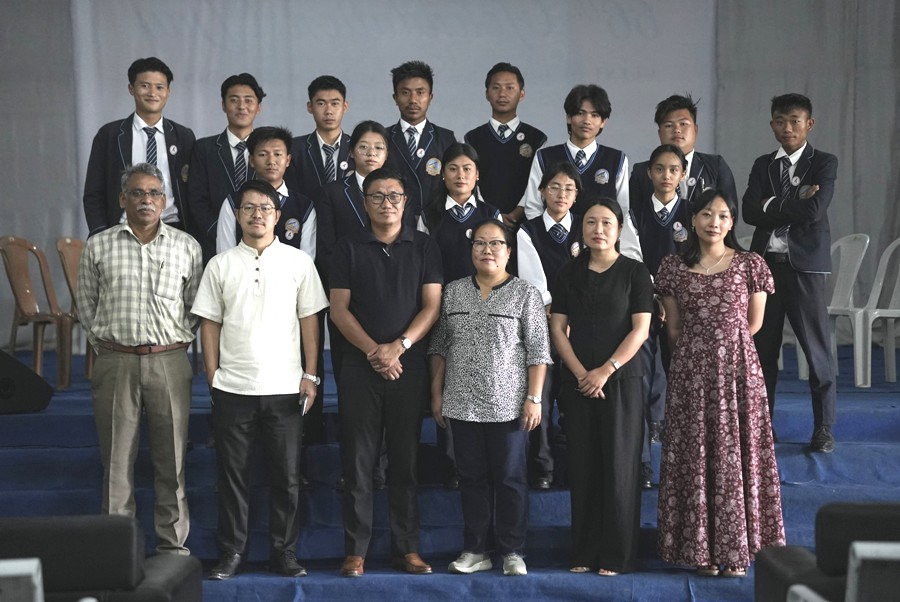SUNDAY, DECEMBER 07, 2025
- Home
- Fazl Ali College PSA holds debate competition
Fazl Ali College PSA holds debate competition
Fazl Ali College Political Science Association held a debate on Inner Line Permit and its role in protecting Naga identity and peace.
Share

DIMAPUR — The Political Science Association (PSA) of Fazl Ali College, Mokokchung, organised its introductory programme for PSA freshers-cum-2nd PSA Debate at the college auditorium on October 17.
According to an update, the debate competition focused on the topic "Inner Line Permit protects indigenous identity and preserves peace in Nagaland".
The guest, judge, and critic for the event was R Sunep Pongen, an alumnus of the college and former president of the Central Nagaland Students’ Association. There were five participants on each side of the motion.
In his reflections, Pongen congratulated all the speakers for their well-prepared presentations and provided constructive feedback. He elaborated on both the advantages and disadvantages of the Inner Line Permit (ILP).
He emphasised that the ILP serves as a safeguard for the Naga population, introduced during the British period to protect indigenous communities from extinction. He also referred to the 16-Point Agreement, suggesting that the ILP aligns with its spirit of preserving Naga identity.
He further noted that with the state’s small and declining population, the ILP acts as a necessary safeguard against demographic imbalance and cultural dilution.
Also read: North East Christian University students take neighbourhood children on exposure tour
Kohima Science College hosts national workshop on geospatial technologies
However, he also acknowledged the limitations and challenges posed by the system. He cited instances where non-locals operate businesses in Nagaland under the names of locals, undermining the very purpose of the ILP. He pointed out that the regulation often discourages industrial growth and investment, contributing to unemployment and economic stagnation.
Pongen further remarked that tourism in Nagaland is affected, as many domestic travellers are deterred by the procedural requirements of obtaining an ILP. He stressed the importance of striking a balance between protecting indigenous identity and creating space for economic progress and inclusivity, urging students to engage critically with such issues as future leaders and policymakers.
Representatives from BA first, third, and fifth semesters of the Political Science Department shared their views and reflections on the debate.
The Best Debater Awards were presented to Moameren A Longkumer (BA 5th Semester) in first place, Witpong (BA 3rd Semester) in second place, and Yimdangjungla Jamir (BA 1st Semester) in third place.

